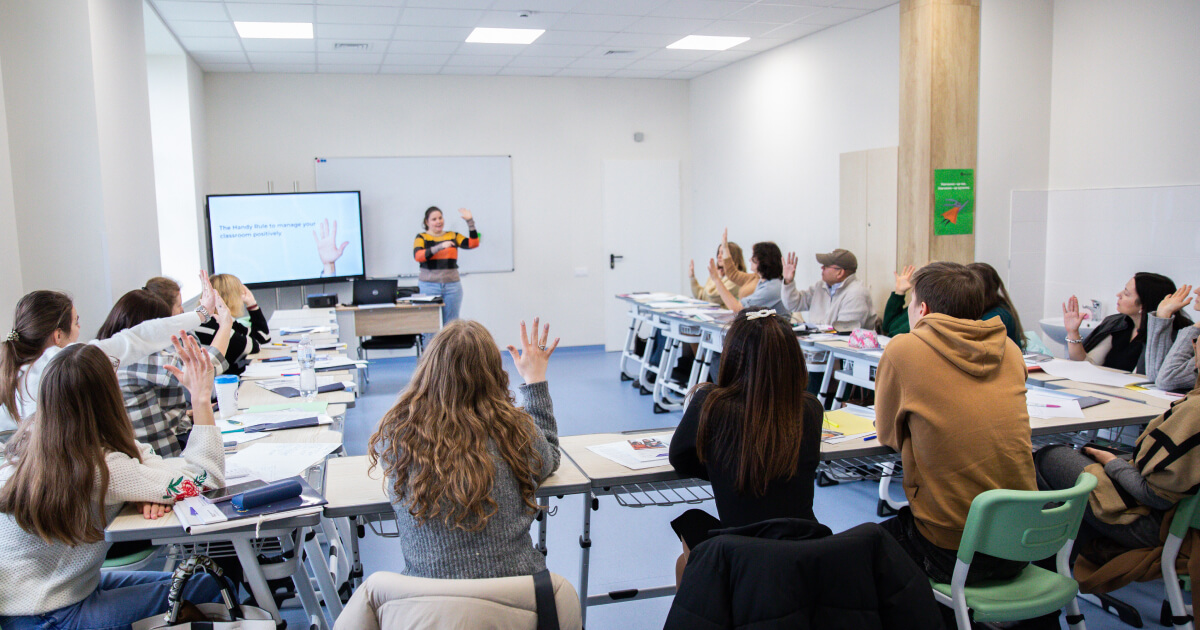
What does it mean to prepare for a task?
- Activities
- Tips & Strategies
- Methodology

21.09.2022
Are you one of those who always writes a detailed lesson plan, or do you think it is a waste of time? A lesson plan is not necessarily a set of instructions to follow, but rather practical advice on how to teach.
Some experienced teachers seem to feel like a duck to water in their classrooms, and this gives them a reason to believe that it is not necessary to plan lessons.
However, for the most part, teachers still do not share this view and prepare for lessons. The resulting plans range from very formal and complex to hastily written abstracts. However, even notes can still be considered a kind of plan.
If you have a plan, of course, you can deviate from it at some stage of the lesson, but you will always have something to rely on, or it will just remind you of what you intended to do. There is another reason for creating a lesson plan: for students, it is a kind of proof that the teacher has spent time thinking about them.

5 typical mistakes in planning a lesson
Read moreMost times, we really think about what we're going to do in a classroom before we go in and start a lesson. In his book, How to Teach English, Jeremy Harmer suggests asking yourself a few questions to help you decide what activities to include in your lesson. What are they?
Each class is different! Before planning a lesson, it is important for teachers to determine who they are teaching. For example, your students might have visual-spatial intelligence or kinesthetic.
It is necessary to take into account their age, interests, what they learn without any effort, and what is difficult because it makes work much easier.
Think about what your students will learn and what they will be able to do in English when they leave the classroom. If you understand what you want to achieve by doing any activity, you can easily choose the right tasks for your lesson.

To make everything work like clockwork, think about the approximate time you will spend on each stage of the lesson or task. If your lesson is too long, focus on the aims and leave only the tasks that will help you achieve them. If it is too short, prepare a few extra games or exercises; working in pairs and groups is best for certain tasks.
Think about how your students will complete a task. Who will do what first? How and when should students be divided into pairs or groups? When will you give instructions? What should these instructions be? What will you do while students work in groups?

Planning a writing lesson
Read moreRemember that you can change the instructions from the coursebook if they do not fit your purpose.
Think about what materials you are going to use. Decide if you need a board and what tracks you are going to play. The best way to do something is not necessarily high-tech, but effective.
Choose materials carefully and think about the physical environment of the classroom, as well as how this may affect your choice of the equipment.
Think about what aspects of your lesson may be difficult for students. For example, when teaching Grade 2 words related to clothing, they may have trouble distinguishing between "shirt" and "skirt". Try to set aside some time for an extra game at the end of the lesson to help them match the words with the pictures of the clothes.

Anticipating problems, you will come to reasonable use of your time in class. And then you don't have to make spontaneous decisions about whether to use 15 minutes of the lesson to teach children the difference between a "skirt" and a "shirt".
Always think about the last lesson when you start planning the next one. If possible, start planning immediately after the previous lesson. Students will notice this consistency — although some may not notice.
Take a crash course in lesson planning
Don't forget to return to your aims when writing a lesson plan to make sure you're on the right track. You can be tempted and dilute your lesson with fun games and tasks, but if they do not help you achieve your goal, it is better to save them for another day.
If you ask yourself these questions while thinking about the next lesson, you will find that your lesson will be much more productive!
Yulia Chorna
Author
Product Manager at Grade University | Experienced Educator in General, Business English & Exam Prep | ELT Conference Organiser | Speaker at TESOL & IATEFL Conferences | Passionate About Teacher Development & Educational Innovation
Comments
Leave your comment